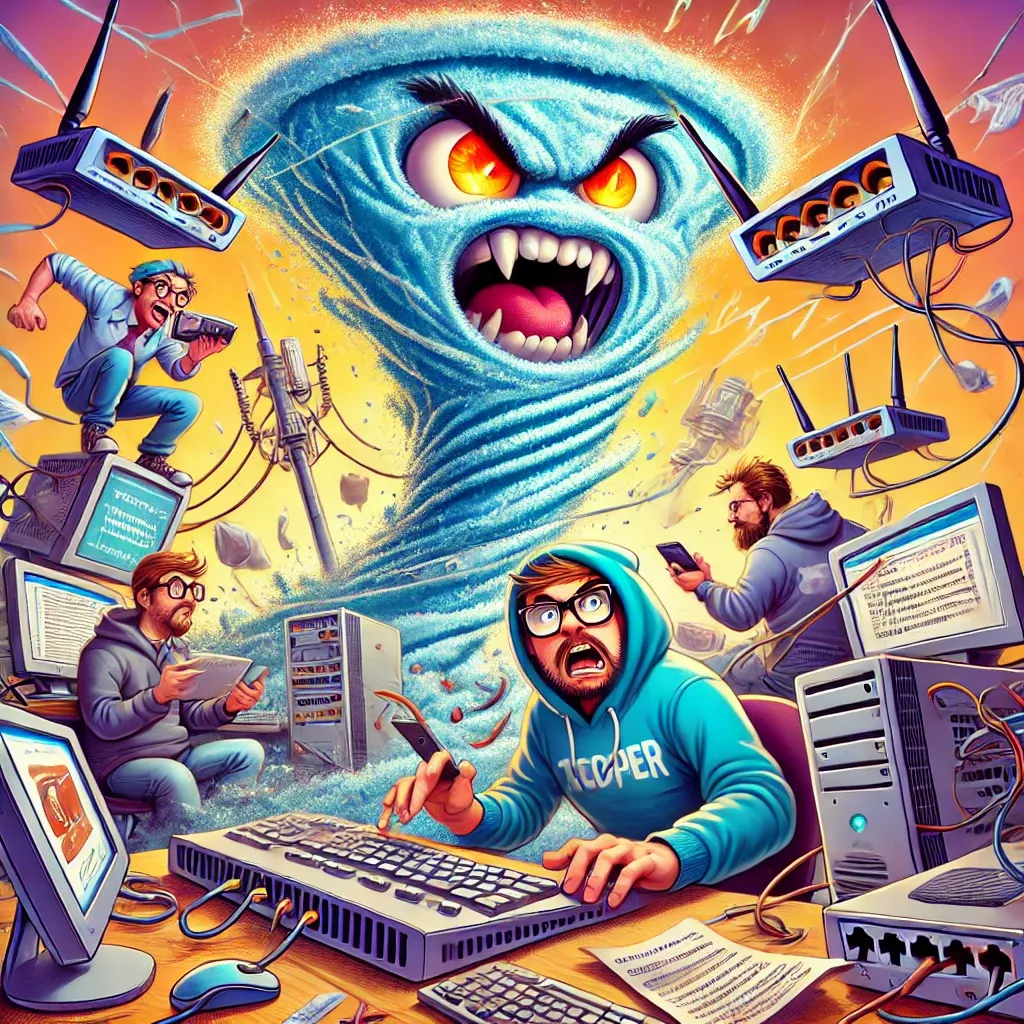Hackers, Routers, and Rudimentary Realities: A Salt Typhoon Sweeps Telecom

In a development that can only be described as equal parts unsettling and eyebrow-raising, the Salt Typhoon hack has swept through America's telecommunications infrastructure, leaving a trail of compromised routers, erased logs, and governmental introspection. As I read the latest updates, I couldn’t help but marvel at the unique absurdity of it all—a cross between a Cold War spy novel and a network administrator’s worst Monday morning.
To set the stage, the White House has confirmed what we all feared but pretended we didn’t know: Our telecom networks are about as secure as a garden shed with the lock missing. Anne Neuberger, the deputy national security adviser for cyber and emerging technology, delivered the news with all the enthusiasm of someone who just found out her car was towed. The hackers—state-affiliated actors from China, no less—exploited rudimentary flaws in IT systems that, frankly, should have been patched before the first iPhone hit the market.
Let’s pause for a moment to appreciate the astonishingly simple mechanism behind this breach. It all started with one administrator account—a single set of credentials, mind you—that provided access to 100,000 routers. If you’re not gasping yet, you should be. That’s like discovering that the key to the front door of Fort Knox is taped under the welcome mat.
But wait, there’s more! Once inside, the hackers erased logs of their actions. The logs that survived, described as “inadequate,” might as well have been written in disappearing ink. This left investigators squinting at a digital crime scene with fewer clues than an Agatha Christie whodunit.
The Human Factor
Here’s the real kicker: This wasn’t some elite tactical cyber operation involving advanced quantum computing and artificial intelligence. This breach largely succeeded because telecommunications companies failed to implement basic cybersecurity measures. It’s like leaving the house unlocked with a neon sign that says, “Come on in—valuable stuff inside!”
We’re not talking rocket science here. The White House outlined four areas where telecoms could pull themselves together: configuration management, vulnerability management, network segmentation, and information sharing. These sound fancy, but they boil down to doing the digital equivalent of locking the door, keeping track of the keys, and maybe talking to the neighbors if you see something suspicious.
International Comparisons and American Optimism
Interestingly, other countries have regulations in place to deal with such threats. Australia and the U.K., for instance, have been hardening their networks since 2018 and 2022, respectively. When asked if such rules could have prevented the Salt Typhoon attack, the Brits, in their trademark understated manner, replied, “We would have found it faster.” Now there’s a ringing endorsement for regulatory rigor if I ever heard one.
The Bigger Picture
While the immediate focus is on cleaning up the mess, the implications of this breach are profound. The hackers appeared particularly interested in phones and data geo-located in Washington, D.C., targeting government officials and individuals of interest. If that doesn’t send a chill down your spine, you might want to check your pulse.
In a surreal twist, among the potential targets were President-elect Donald Trump and Vice President-elect J.D. Vance. One imagines the hackers poring over reams of intercepted text messages, hoping for state secrets but likely finding debates over the best steakhouse in the District.
A Thought-Provoking Coda
The Salt Typhoon hack isn’t just a cautionary tale about cybersecurity—it’s a reminder of how intertwined our digital and physical worlds have become. A breach in a telecom network isn’t just a technical failure; it’s a national security threat, a privacy violation, and, in some ways, a cultural indictment.
After all, we live in a world where the same people responsible for protecting critical infrastructure are also trying to figure out how to reset their Netflix passwords. If that doesn’t give you pause, nothing will.
So here’s my plea to telecom companies everywhere: Please, for the love of all that is good and holy, secure your networks. Patch your systems. And maybe—just maybe—don’t make it so easy for hackers to waltz in and take a look around.
Because the next time a Salt Typhoon rolls in, we might not be so lucky.
Comments ()